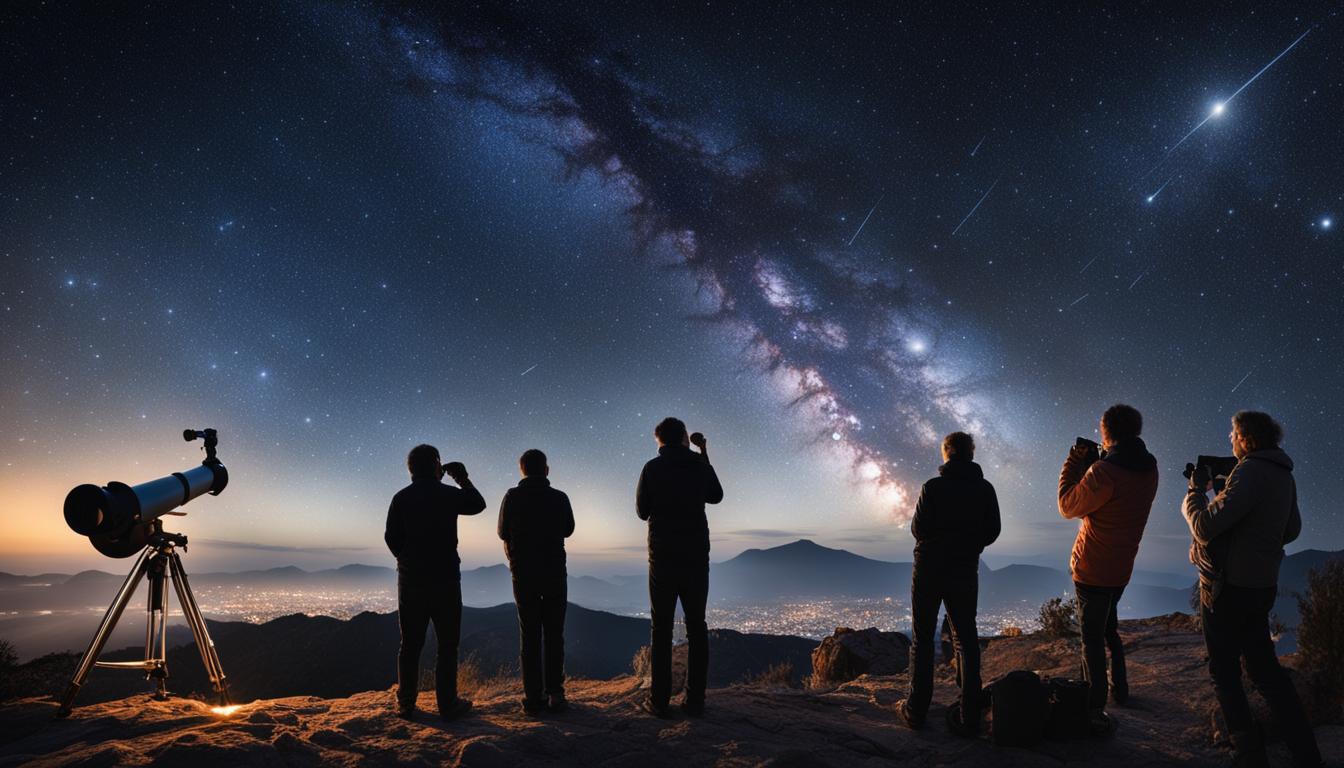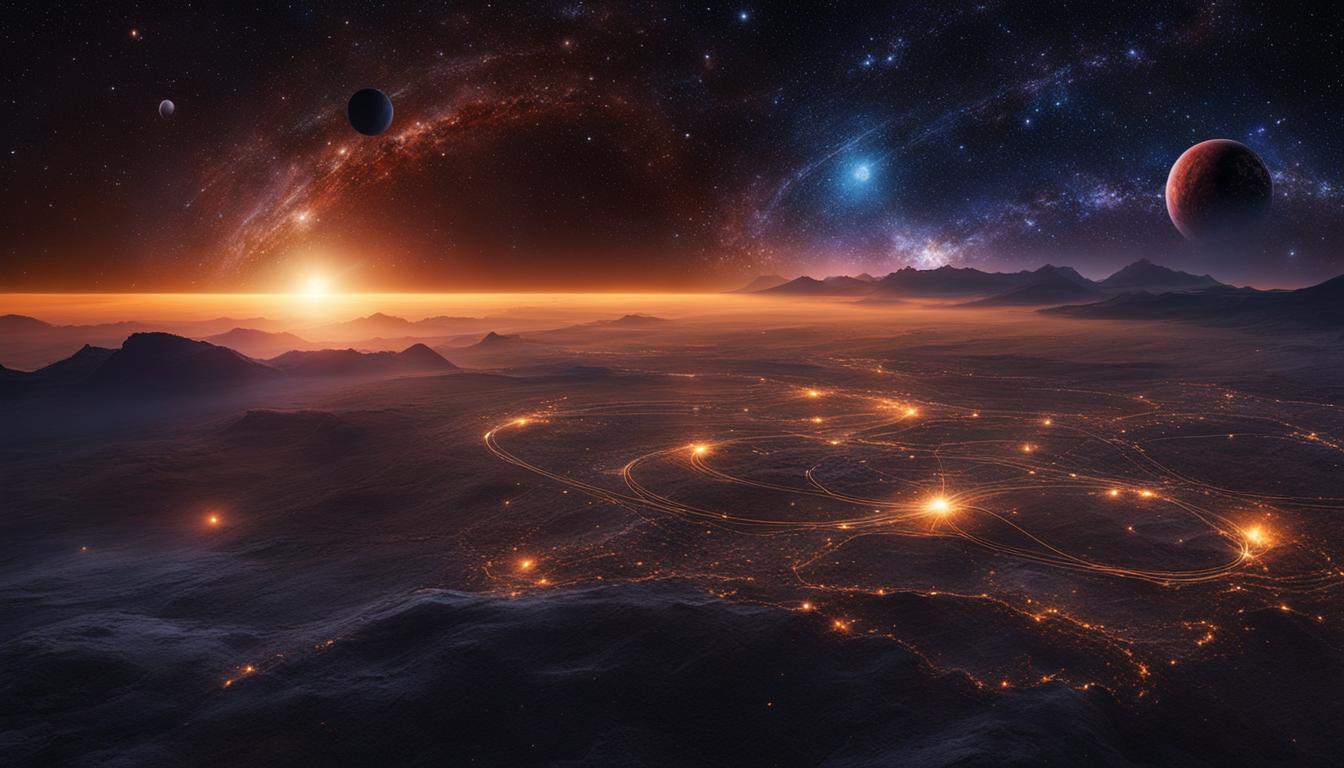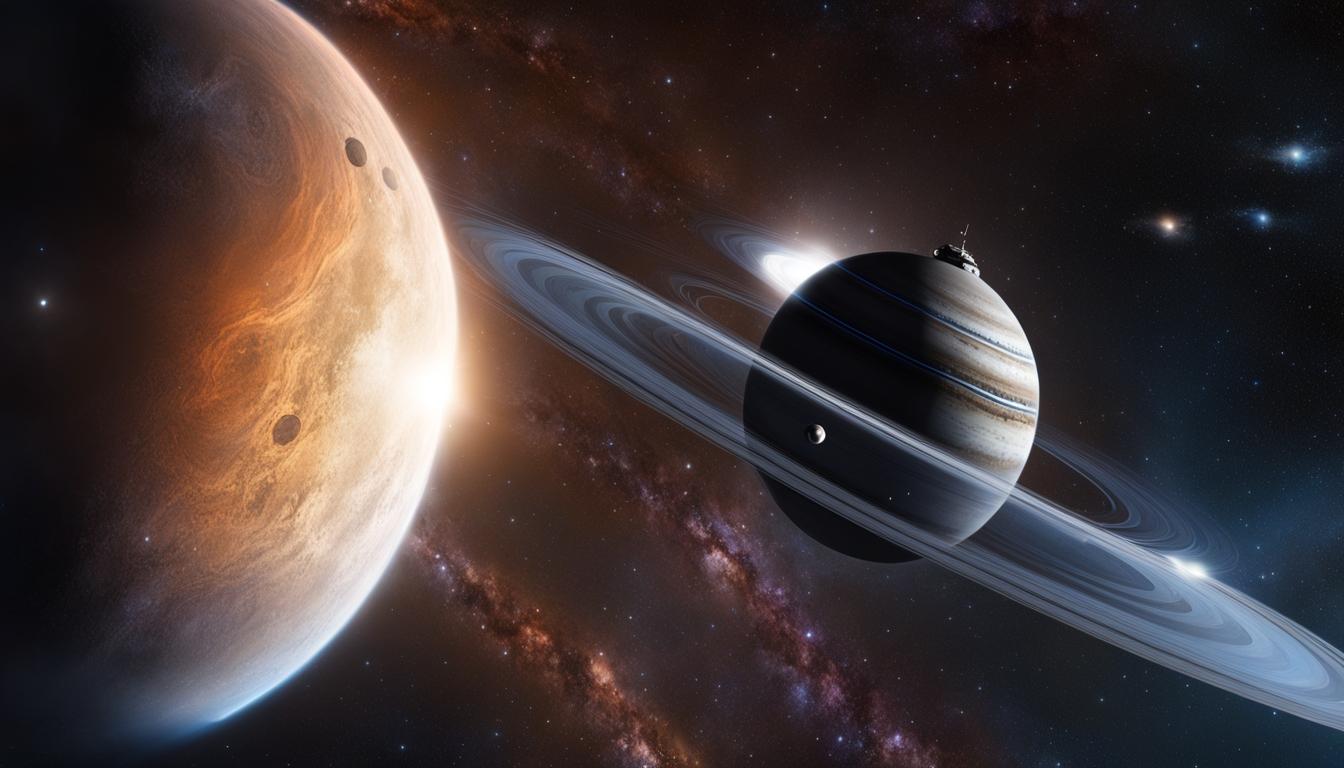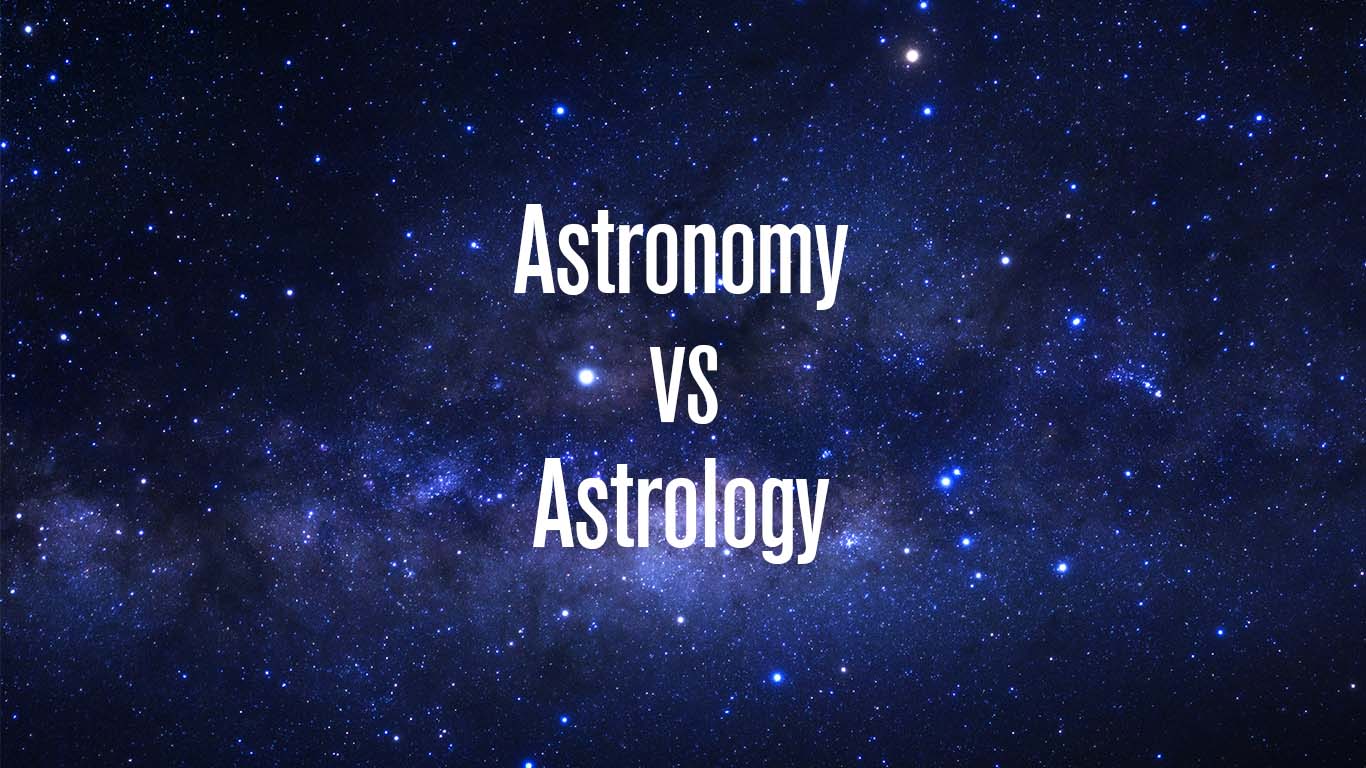Unraveling the Mysteries: Astronomy vs Astrology Explained
Have you ever looked up at the night sky and wondered about the stars and planets? Have you ever read your horoscope and wondered about its accuracy? Astronomy and astrology are two distinct fields of study that both deal with celestial bodies, but they have significant differences. Understanding these differences is essential to appreciate their significance in our lives. In this section, we will explore the astronomy vs astrology, and delve into their individual histories and significance.
Astronomy is a scientific discipline that focuses on the observation and study of celestial objects such as stars, planets, and galaxies. It seeks to understand the vastness of the universe through evidence-based research and empirical data. In contrast, astrology is an ancient form of divination that attempts to interpret the influence of celestial bodies on human affairs. Astrologers use planetary alignments and horoscopes to make predictions and provide insights into an individual’s destiny.
Despite their differences, astronomy and astrology have both played significant roles in human history and continue to have an impact on modern society. Understanding the distinction between these two fields can help us better appreciate their individual significance and explore the mysteries of the cosmos.
Key Takeaways:
- Astronomy and astrology are distinct fields of study, with different focuses and methodologies.
- Astronomy is a scientific discipline that seeks to understand the universe through empirical data, while astrology is an ancient form of divination that attempts to interpret the influence of celestial bodies on human affairs.
- Despite their differences, both astronomy and astrology have played significant roles in human history and continue to have an impact on modern society.
- Understanding the distinction between these two fields can help us better appreciate their individual significance and explore the wonders of the cosmos.
- Next, we will dive deeper into the science of astronomy, exploring how astronomers observe and study celestial objects to expand our cosmic knowledge.
The Science of the Stars: Understanding Astronomy

Astronomers use a variety of tools and techniques to observe and explore these objects, from telescopes on Earth and in space to sophisticated computer simulations and data analysis. By analyzing the light and other forms of radiation emitted by celestial objects, scientists can learn about their composition, age, and other important characteristics.
| Types of Celestial Objects | Description |
|---|---|
| Stars | Spheres of plasma held together by gravity that produce energy via nuclear fusion in their cores. |
| Planets | Large spherical objects that orbit around stars and lack the intense radiation and nuclear fusion of stars. |
| Galaxies | Island universes consisting of billions of stars, gas, and dust that are held together by gravity and often have supermassive black holes at their centers. |
| Black Holes | Regions of spacetime where gravity is so strong that nothing, not even light, can escape. |
Astronomy has played a crucial role in advancing our understanding of the universe. From the discovery of new planets and moons in our solar system to the identification of distant galaxies and black holes, this field continues to expand our knowledge of the cosmos.
Furthermore, advancements in space exploration and technology have allowed astronomers to gather data and study celestial objects in unprecedented detail. For example, NASA’s Kepler spacecraft has identified thousands of exoplanets, or planets outside of our solar system, providing valuable insights into the prevalence and diversity of these objects in the universe.
As our understanding of astronomy continues to evolve, we can expect even more exciting discoveries and breakthroughs that will help us unravel the mysteries of our universe.
The Ancient Art: Unveiling Astrology’s Origins
For centuries, astrology has been a source of fascination and intrigue for people around the world. The practice of astrology dates back to ancient times, where it emerged as a form of divination used to interpret celestial phenomena and predict future events.
Astrology’s origins can be traced to the Babylonians, who developed the zodiac signs as we know them today. The zodiac signs are based on the 12 constellations that the sun passes through during its journey across the sky over the course of a year. Each zodiac sign is associated with specific personality traits and characteristics that are believed to influence an individual’s destiny.
Over time, astrology spread to other civilizations, including the Greeks and Romans, who further developed the practice and associated it with their own mythology and deities. Astrology continued to evolve and gain popularity throughout the Middle Ages and into the Renaissance. During this time, astrologers became more sophisticated in their interpretations and began to incorporate more complex calculations and techniques.
Despite its long and colorful history, astrology has also faced criticism and skepticism. Some view it as a pseudoscience and question its validity, arguing that there is no scientific evidence to support its claims. Others argue that astrology has been misinterpreted and distorted over time, and that its true origins and purpose have been lost.
Despite these controversies, astrology remains a popular and influential practice today, with many people turning to horoscopes and astrological readings for guidance and insight into their lives.

Astronomical Discoveries: Expanding Our Cosmic Knowledge
Astronomy has been instrumental in expanding our understanding of the universe. Over the years, several significant astronomical discoveries have been made, thanks to the use of advanced technologies like telescopes and space exploration.
One of the most exciting astronomical discoveries was made in 1610 when Galileo Galilei first observed the moons of Jupiter through a telescope. This discovery provided unequivocal proof that the universe did not revolve around the Earth, as was previously believed.
Another significant discovery was the existence of dark matter, which was first hypothesized by Swiss astronomer Fritz Zwicky in 1933. Dark matter is a form of matter that is believed to make up about 27% of the total mass in the universe.
One of the most astonishing discoveries made in recent times was the detection of gravitational waves, which was first announced in 2016. Gravitational waves are ripples in the fabric of space-time that are caused by the collision of massive objects like black holes. The detection of gravitational waves was a massive achievement and a testament to the progress made in modern scientific advancements.
The use of telescopes has also played a vital role in expanding our knowledge of the universe. The Hubble Space Telescope, for instance, has provided us with stunning images of galaxies and nebulas millions of light years away. It has been in operation since 1990 and continues to provide valuable insights into the universe’s workings.
| Year | Discovery |
|---|---|
| 1967 | Pulsars |
| 1992 | First exoplanets |
| 2005 | Dwarf planet Eris |
The table above highlights a few of the many astronomical discoveries made over the years. It’s worth noting that each of these discoveries was made possible by scientific advancements in the field of astronomy.
In conclusion, the use of telescopes, space exploration, and scientific advancements has led to many astronomical discoveries that have expanded our understanding of the universe. These discoveries have given us a glimpse into the workings of the cosmos and have helped us realize how small we truly are in the grand scheme of things.
Astrological Beliefs: Connecting the Dots of Destiny
Astrology is an ancient form of divination that claims to interpret the influence of planetary alignments on human affairs. Astrologers believe that the position of celestial bodies at the time of a person’s birth can reveal their personality traits, innate qualities, and future.
Horoscopes are a common tool used by astrologers to provide insights into a person’s destiny. These are predictions based on the positioning of the planets at a given time and are often broken down by zodiac signs. Individuals often seek out horoscopes online or in magazines to gain insight into their love life, career prospects, or general wellbeing.
Despite being dismissed by some as pseudoscience, astrology remains popular around the world. Many individuals find comfort in the idea that the universe is somehow guiding their path through life.
While there is no scientific evidence to support the claims of astrology, its enduring popularity speaks to its cultural significance.

“We are born at a given moment in a given place and like vintage years of wine, we have the qualities of the year and of the season of which we are born. Astrology does not lay claim to anything more.” – Carl Jung
Despite the lack of empirical evidence, astrological beliefs have endured throughout history and continue to influence many people today. Whether it is through the reading of horoscopes or finding meaning in the movements of the stars, astrology provides a sense of connection to something greater than ourselves.
However, it is important to approach astrology with critical thinking and a healthy dose of skepticism. While it may offer comfort and guidance, it should not be relied upon as a definitive guide to our lives. Rather, it should be viewed as a tool for introspection and self-reflection.
The Scientific Approach: Astronomy vs Astrology
While both astronomy vs astrology deal with celestial objects, they differ significantly in terms of their scientific approach.
Astronomy is a discipline grounded in evidence-based research and empirical data. Researchers use the scientific method to observe, measure, and interpret the physical properties of celestial objects such as stars, planets, and galaxies. These observations and measurements form the basis of our understanding of the universe.
On the other hand, astrology lacks the same scientific rigor. While astrologers interpret planetary alignments and horoscopes to make predictions and provide insights into an individual’s destiny, these interpretations are not based on empirical evidence or rigorous scientific research.
The scientific community has long debunked many of the claims made by astrologers. In fact, most scientists view astrology as a pseudoscience, as it lacks the essential criteria for scientific study – a hypothesis that can be tested through empirical observations and evidence-based conclusions.
The bottom line is that while astronomy is a respected scientific discipline, astrology should be viewed as nothing more than entertainment and not taken seriously as a means of divination or guidance.
GPS doesn’t work out here Astronaut T-Shirt
Introducing our “GPS Doesn’t Work Out Here Astronaut T-Shirt” – the perfect blend of cosmic humor and interstellar style for space enthusiasts like you! Embrace the unknown and celebrate the spirit of exploration with this unique and eye-catching Astronaut T-Shirt. Crafted from premium quality cotton, this shirt offers a comfortable fit that’s ideal for both…
Celestial Maps and Star Charts: Tools of the Trade
As astronomers gaze up at the night sky, they rely on a range of tools to navigate and observe celestial objects. One of the most essential of these is the celestial map, a detailed representation of the stars and planets visible from a specific location on Earth.
These maps have been used for centuries, and today they are available in both print and digital formats. Digital maps can be viewed on computers, tablets, and even smartphones, and many include interactive features that allow users to zoom in and out, track the movements of planets and stars, and more.
Star charts are another important tool in the astronomer’s arsenal. These charts provide a visual representation of the positions of stars and planets in the night sky, making it easier to identify specific objects of interest. Star charts can be customized based on the observer’s location and the time of year, ensuring that they are always accurate and up-to-date.
The Advantages of Digital Tools
While printed maps and charts remain popular, digital tools have become increasingly prevalent in recent years. These tools offer a number of advantages, including:
- Greater flexibility: Digital maps and charts can be easily customized, allowing users to view specific objects or regions of the sky as needed.
- Enhanced interactivity: Many digital tools include features like zooming, panning, and real-time tracking, making it easier to explore the night sky from different angles and perspectives.
- Accessibility: With digital tools, anyone with an Internet connection can access a wealth of information about the stars and planets, no matter where they are in the world.
The Role of Constellations
Finally, it’s worth noting the significance of constellations in both astronomy and astrology. Constellations are groups of stars that have been identified and named based on their position in the night sky. Over the centuries, people have observed these patterns and used them to navigate and track the movements of the stars and planets. Today, constellations continue to play an important role in astronomy, serving as reference points for astronomers as they explore the cosmos.
In astrology, constellations are also significant, with each zodiac sign corresponding to a specific constellation. Astrologers believe that the alignment of these constellations at the time of a person’s birth can influence their personality, character traits, and even their fate. While there is little scientific evidence to support these beliefs, many people continue to find meaning and guidance in the world of astrology.
Cosmic Influences: Astronomy and Astrology’s Impact on Society
In addition to their scientific and historical significance, astronomy and astrology also have a profound impact on society. From cultural practices to popular beliefs, the study of the cosmos has shaped our understanding of the world around us.
The Cultural Significance of Astrology
Astrology has maintained its popularity throughout the centuries, and its cultural significance remains strong today. Many people turn to astrology for insights into their personalities, relationships, and life paths. The influence of astrology can be seen in various aspects of popular culture, including literature, music, and film.
Fun fact: Did you know that famous singer Adele has a tattoo of the astronomical symbol for her zodiac sign, Sagittarius, on her left hand? This is just one example of how astrology has permeated popular culture.
Promoting a Better Understanding of Astronomy
While astrology may be more well-known among the general public, astronomy is essential for understanding the universe we live in. It is the scientific study of celestial objects and phenomena, and its advancements have led to groundbreaking discoveries that have expanded our knowledge of the cosmos.
One of the challenges facing astronomers is communicating their work to the public in an accessible and engaging way. Science communication plays a critical role in promoting a better understanding of astronomy and its significance. It helps to demystify the science and encourages people to appreciate the wonders of the universe.
Comparing Astrology and Astronomy Popularity
While astronomy may be less well-known than astrology, it is still popular among enthusiasts, and its popularity has been steadily increasing in recent years. In fact, according to a study by the National Science Foundation, the number of students pursuing degrees in astronomy and astrophysics has been on the rise.
Comparatively, astrology continues to be a cultural mainstay, with millions of people around the world consulting their horoscopes regularly. Despite its lack of scientific credibility, astrology remains a fascinating topic for many, and its popularity shows no signs of waning.
In conclusion, while astronomy and astrology may have their differences, they both have a significant impact on our society. Astrology’s cultural significance and popularity continue to fascinate and inform, while astronomy’s advancements and discoveries expand our understanding of the cosmos. By promoting a better understanding of both, we can appreciate the wonders of the universe and the role it plays in our lives.
Modern Applications: Astronomy and Astrology Today
In recent times, the fields of astronomy and astrology have continued to evolve, with various modern applications finding their way into society.
Astronomy and Space Exploration
Astronomy remains an essential discipline in space exploration technologies, with new discoveries and missions pushing the boundaries of our understanding of the universe. For instance, NASA’s Mars rover missions seek to uncover more information about the red planet’s atmosphere, geology, and potential habitability. Similarly, the James Webb Space Telescope, set for launch in 2021, promises to offer unprecedented views of our universe, with the ability to observe the formation of the first galaxies.

Astrology in Popular Culture
While astrology is not a science, its influence on popular culture continues to thrive, with millions of people worldwide relying on horoscopes and other astrological beliefs as a form of guidance. Astrology has infiltrated various aspects of modern life, with social media platforms awash with memes and posts about zodiac signs, and the entertainment industry using horoscopes as plot devices in movies and TV shows.
Scientific Advancements
Scientific advancements, such as big data, have provided astrologers with new tools and methods for analyzing and interpreting planetary alignments. In the same vein, astronomers continue to use cutting-edge technologies, such as adaptive optics and interferometry, to improve telescope performance and the quality of astronomical data. These scientific advancements have led to a better understanding of our universe and the correlation between various celestial objects and events.
Overall, astronomy and astrology continue to impact modern society in various ways. While they differ significantly in their approaches and methodologies, they both offer unique perspectives on our universe and the role we play in it.
Debunking Myths: Setting the Record Straight
As with any field, astronomy and astrology have their fair share of misconceptions and myths. It’s important to separate fact from fiction and approach these topics with a critical eye. Let’s take a closer look at some of the most common misconceptions associated with these disciplines.
Astronomy Misconceptions
Myth: The moon landing was faked.
Fact: The moon landing was a historic achievement that took years of planning, research, and hard work to accomplish. There is overwhelming evidence to support the fact that humans did, in fact, land on the moon.
Myth: The universe revolves around the Earth.
Fact: Copernicus and Galileo were among the first to discover that the Earth revolves around the sun, not the other way around. This fact has been scientifically proven and widely accepted for centuries.
Astrology Misconceptions
Myth: Astrology can predict the future with absolute certainty.
Fact: While astrologers use planetary alignments and horoscopes to make predictions and provide insights, these predictions should not be taken as absolute truths. There are many factors that can influence a person’s life, and astrology is just one of many tools that can be used to gain insights.
Myth: Astrology is a science.
Fact: While astrology may have some scientific roots, it is not currently considered a science. Astrology lacks the empirical data and evidence-based research that is necessary for a field to be considered a science.
By debunking these common myths and misconceptions, we can gain a better understanding of the true nature of astronomy and astrology. It’s important to approach these topics with critical thinking and a desire to learn, rather than accepting unfounded beliefs or claims as truth.
Conclusion
After exploring the intriguing astronomy vs astrology, it is clear that they are two distinct fields with different histories, approaches, and significance in our lives.
Astronomy is a scientific discipline that involves observing and studying celestial objects to understand the vastness of the universe. Astronomers utilize telescopes, space exploration, and scientific advancements to make groundbreaking discoveries.
Astrology, on the other hand, is an ancient form of divination that interprets planetary alignments and zodiac signs to provide insights into an individual’s destiny. While astrology remains popular in various aspects of popular culture, it lacks the scientific rigor of astronomy.
By examining astronomy vs astrology on society, we can appreciate their cultural significance and ensure that scientific facts are not confused with unfounded beliefs.
In conclusion, it is important to recognize the differences between astronomy and astrology and to promote a better understanding of both fields. By doing so, we can gain a greater appreciation for the mysteries of the universe and our place within it.
Key Takeaways
- Astronomy vs astrology are two distinct fields with different histories, approaches, and significance in our lives.
- Astronomy is a scientific discipline that involves observing and studying celestial objects to understand the universe.
- Astrology is an ancient form of divination that interprets planetary alignments and zodiac signs to provide insights into an individual’s destiny.
- Critical thinking is essential when evaluating beliefs and misconceptions associated with astronomy and astrology.
FAQ
What is astronomy vs astrology?
Astronomy is a scientific discipline that studies celestial objects and the universe. It focuses on observation, measurement, and analysis using empirical data. Astrology, on the other hand, is an ancient practice that interprets the positions and movements of celestial bodies to make predictions and provide insights into human behavior and destiny.
How does astronomy contribute to our understanding of the universe?
Astronomers use telescopes and scientific instruments to observe and study celestial objects such as stars, planets, and galaxies. By analyzing the data they collect, astronomers gain insights into the nature of the universe, its origins, and its evolution.
What is the history of astrology?
Astrology has ancient origins and has been practiced for thousands of years. It emerged as a form of divination, with early civilizations associating the movements of celestial bodies with various aspects of human life. Over time, astrology developed its system of zodiac signs and horoscopes.
What are some significant astronomical discoveries?
Astronomical discoveries have revolutionized our understanding of the cosmos. For example, the discovery of exoplanets has expanded our knowledge of planetary systems beyond our own. The Hubble Space Telescope has revealed stunning images of distant galaxies, and the detection of gravitational waves has confirmed Einstein’s theory of relativity.
How do astrologers make predictions?
Astrologers interpret the positions and alignments of celestial bodies, such as planets and stars, to make predictions about individual’s lives and behavior. They believe that these cosmic influences can provide insights into personality traits, relationships, and even future events.
Why is astronomy considered a science and astrology not?
Astronomy follows the scientific method, involving observation, experimentation, and analysis of empirical data. It is based on evidence and strives for objective understanding. Astrology, on the other hand, lacks scientific evidence and relies on subjective interpretations of celestial movements.
What tools do astronomers use?
Astronomers utilize various tools, including telescopes, cameras, and spectrographs, to study celestial objects. Celestial maps and star charts help them navigate the night sky and identify constellations. Advanced technologies, such as space-based observatories and computer simulations, also play a crucial role in modern astronomical research.
How does astrology influence society?
Astrology holds cultural significance in many societies, as people often turn to it for guidance and understanding. Horoscopes and astrology-themed media are popular forms of entertainment. Science communication also plays a role in promoting a better understanding of astronomy and separating scientific facts from astrological beliefs.
How do astronomy and astrology apply in modern times?
Astronomy continues to advance our understanding of the universe through space exploration, discovering new phenomena, and making technological advancements. Astrology remains popular in popular culture, with many people seeking astrological guidance or finding enjoyment in reading horoscopes.
What are the common misconceptions about astronomy and astrology?
Some misconceptions include believing that astrology can predict specific events with certainty or that astronomers study horoscopes. It’s important to practice critical thinking and differentiate between evidence-based scientific knowledge and unfounded beliefs.
🎧 Never Miss a Drop
Exclusive product releases, hip-hop deep dives, and member-only discounts. Straight to your inbox.
Free forever. No spam. Unsubscribe anytime.

Get the Culture, Delivered
Deep dives into hip-hop history, exclusive product drops, and discounts sent straight to your inbox. No spam, just culture.
Join 2,000+ hip-hop heads already in the loop. Unsubscribe anytime.








